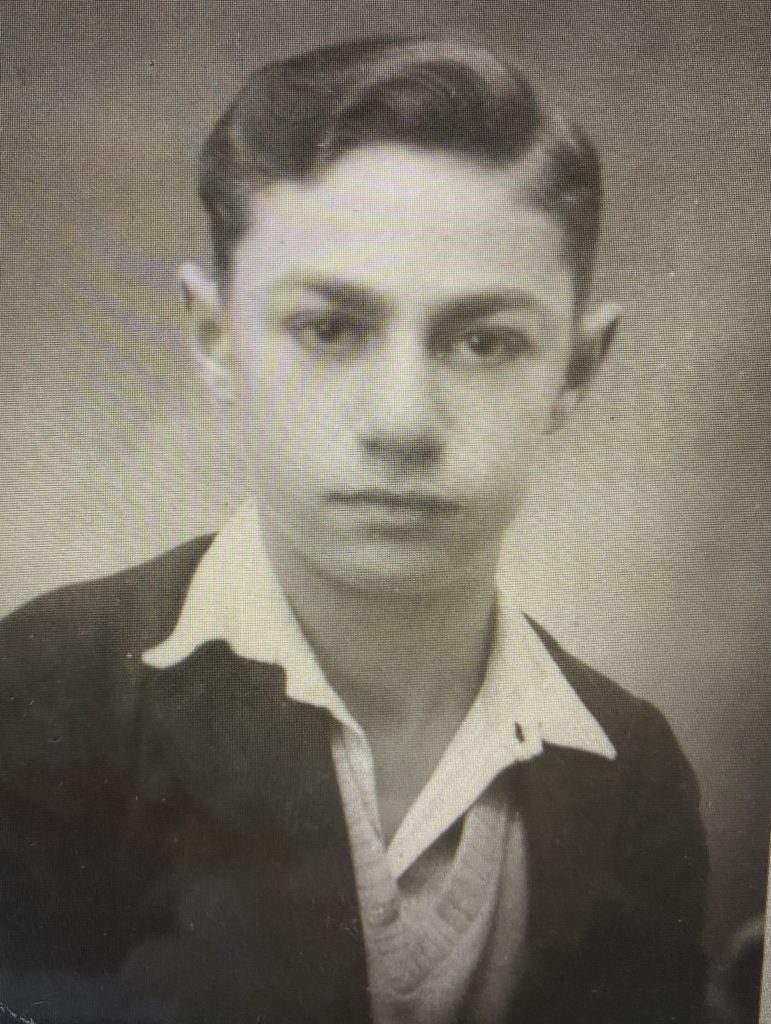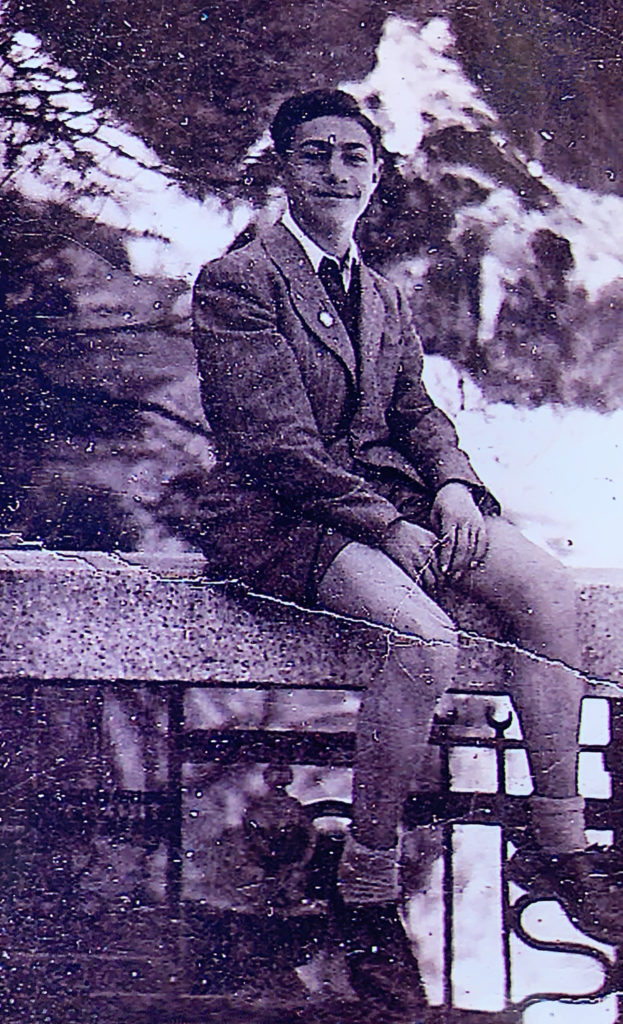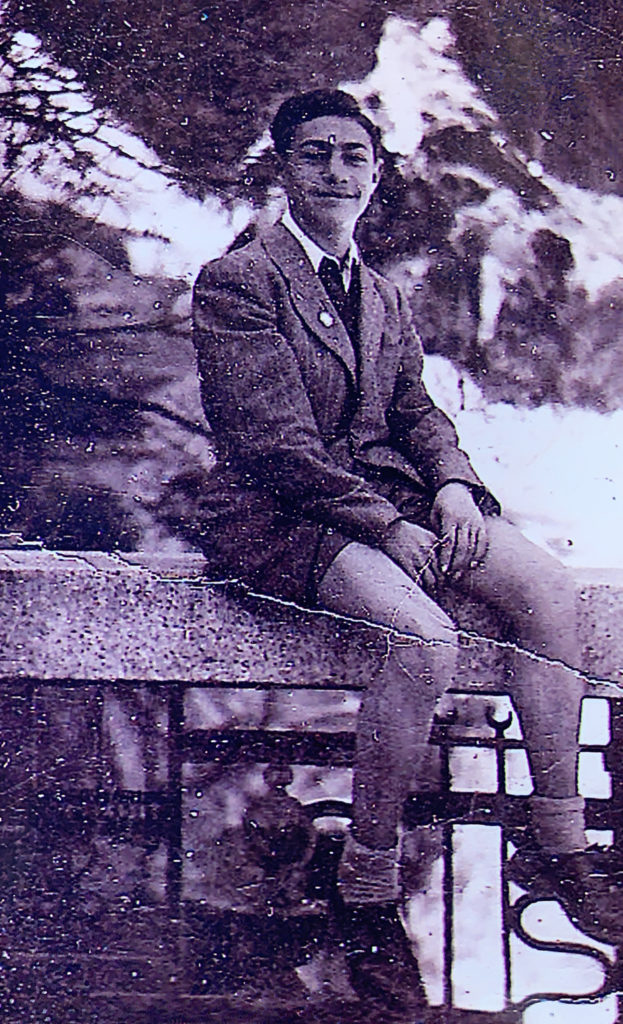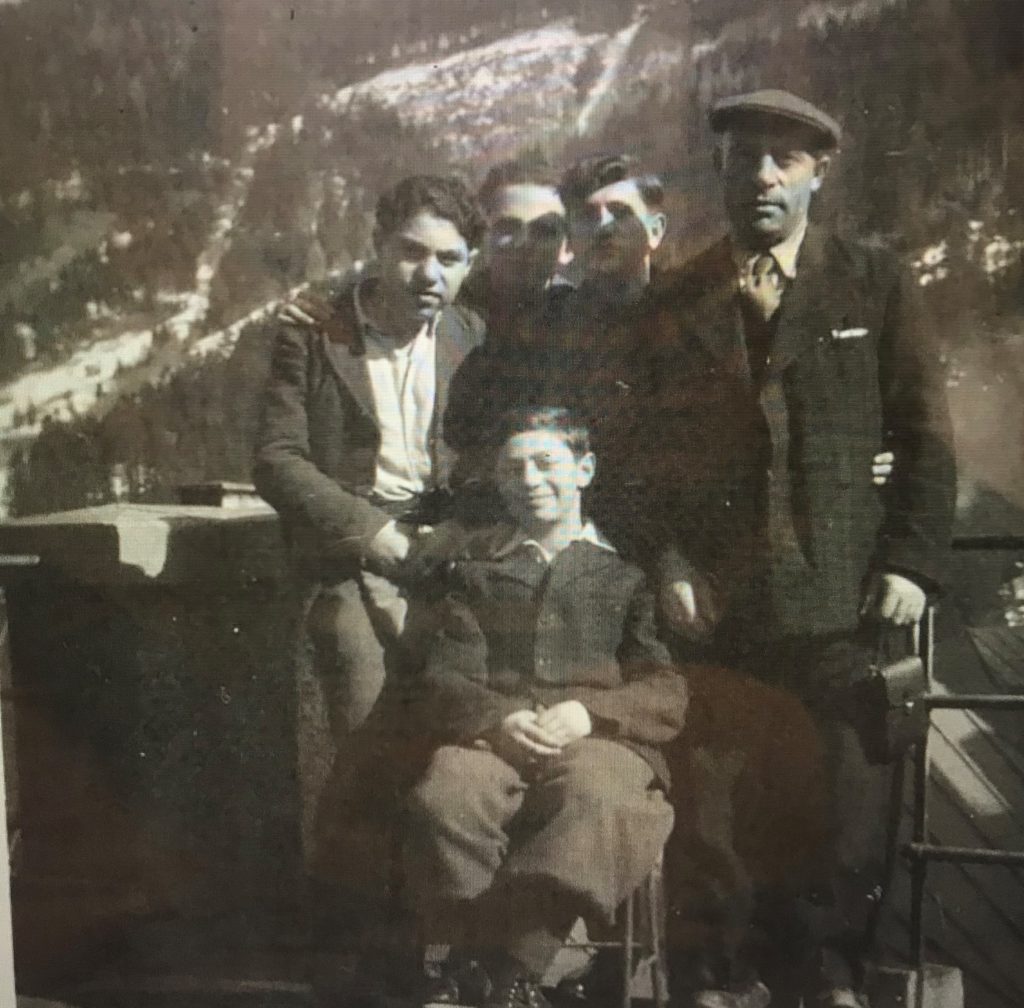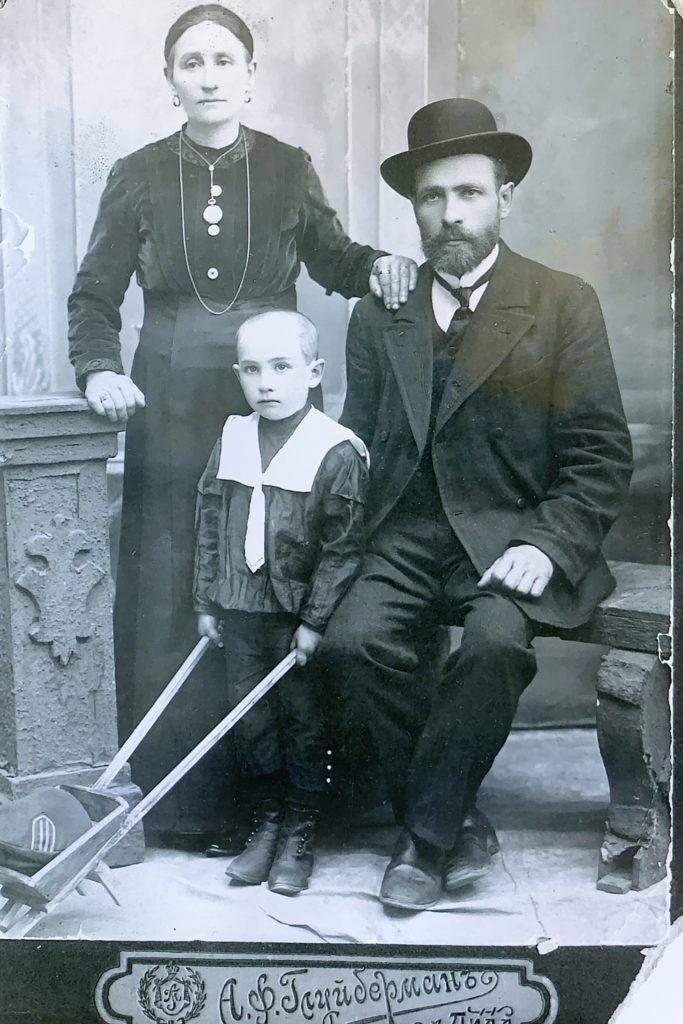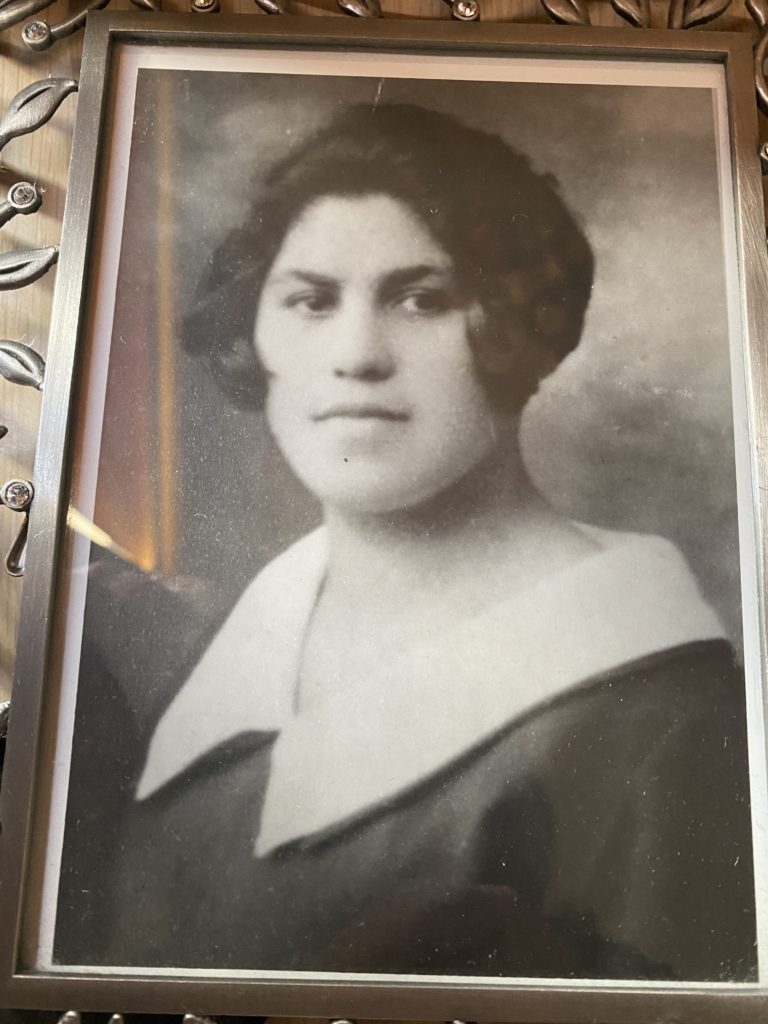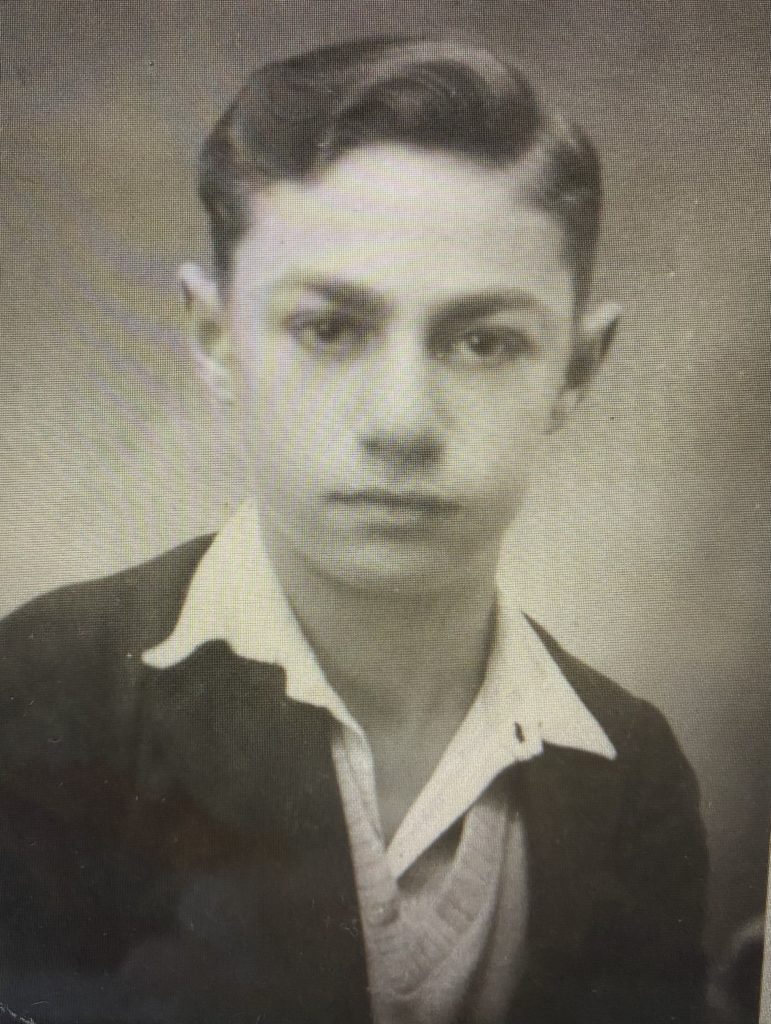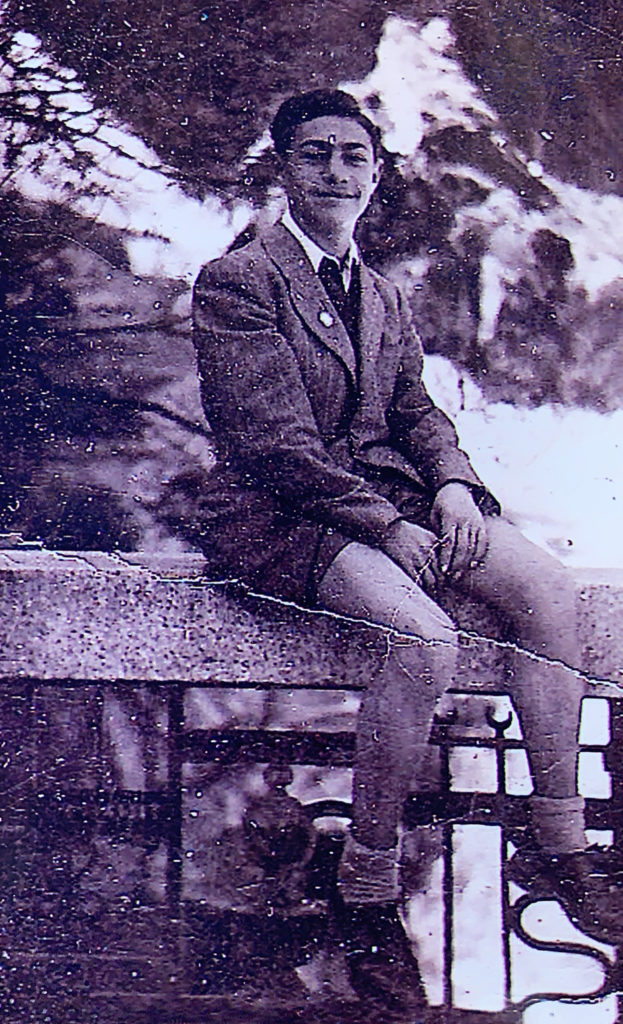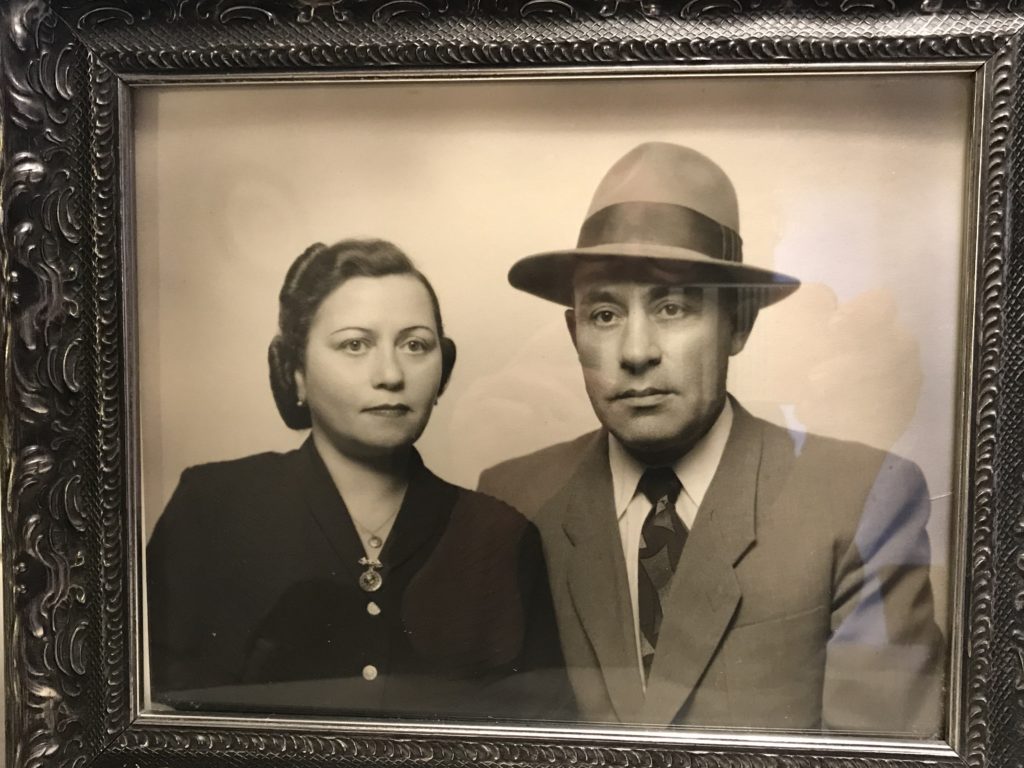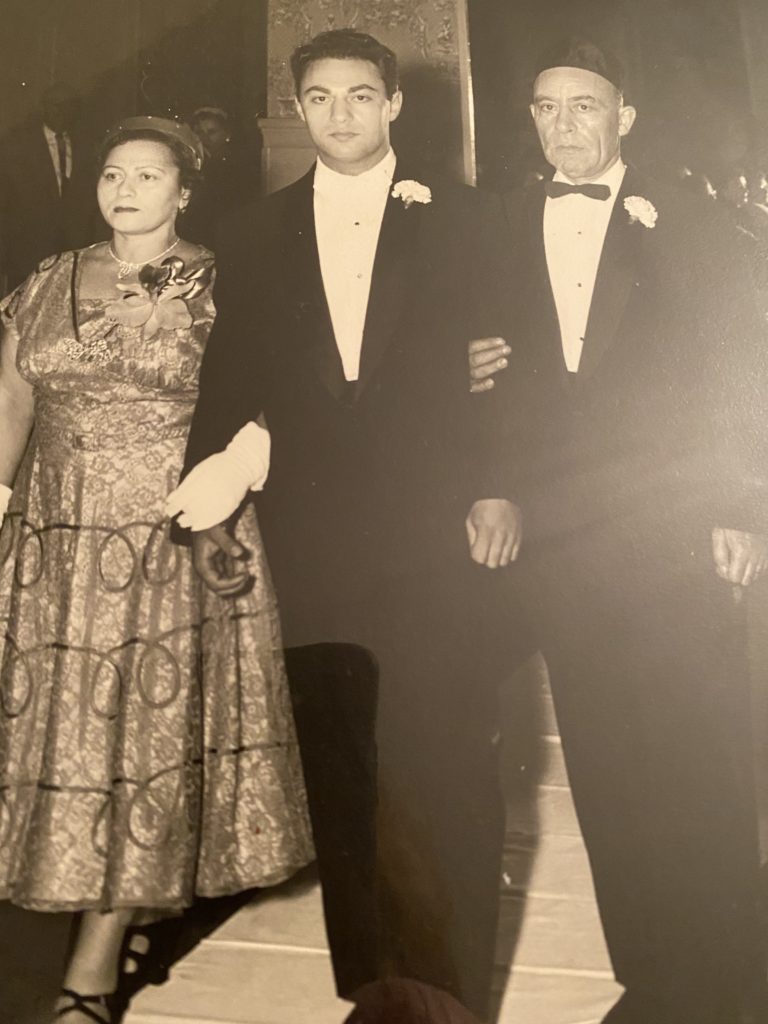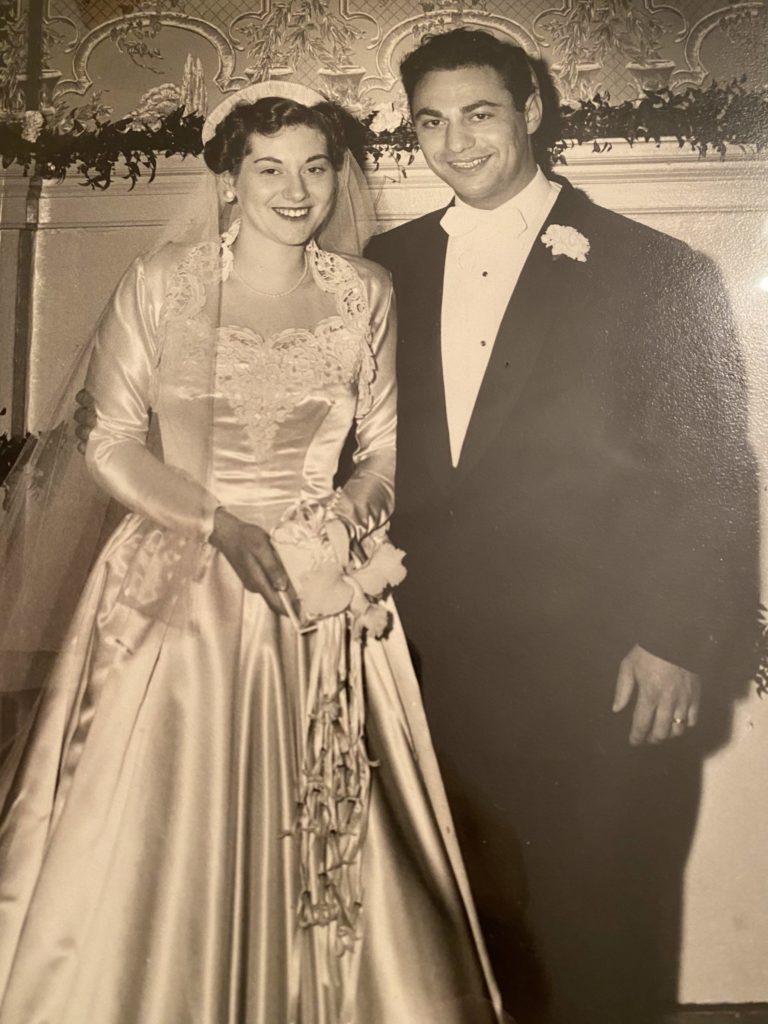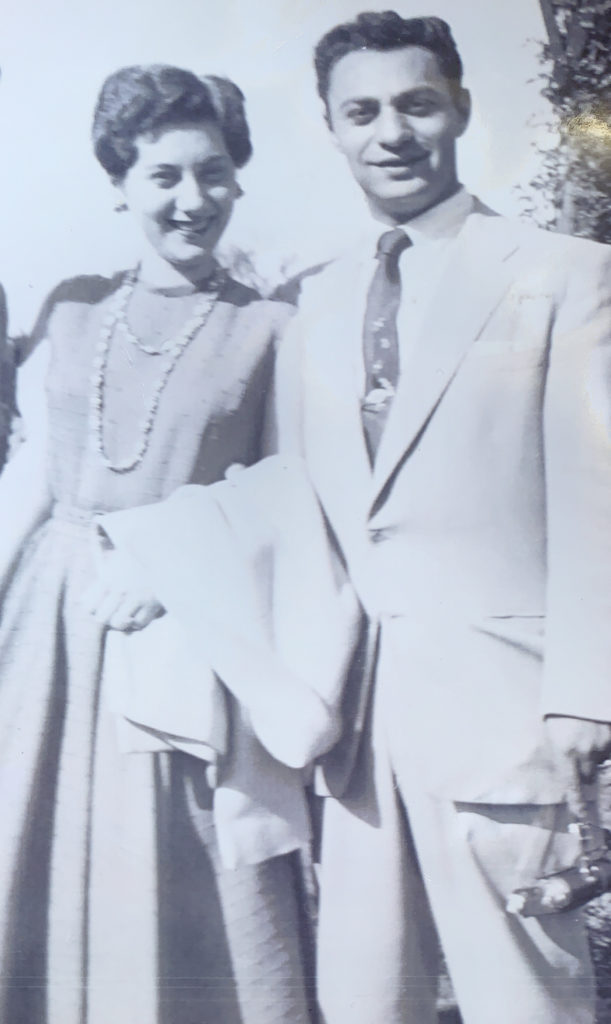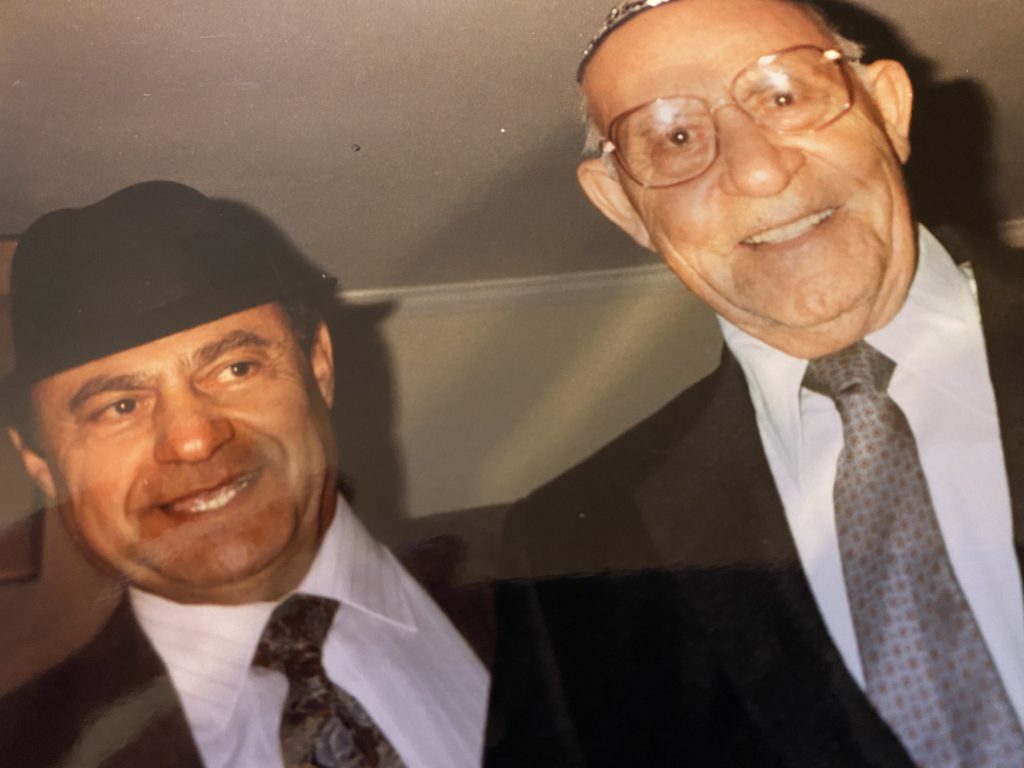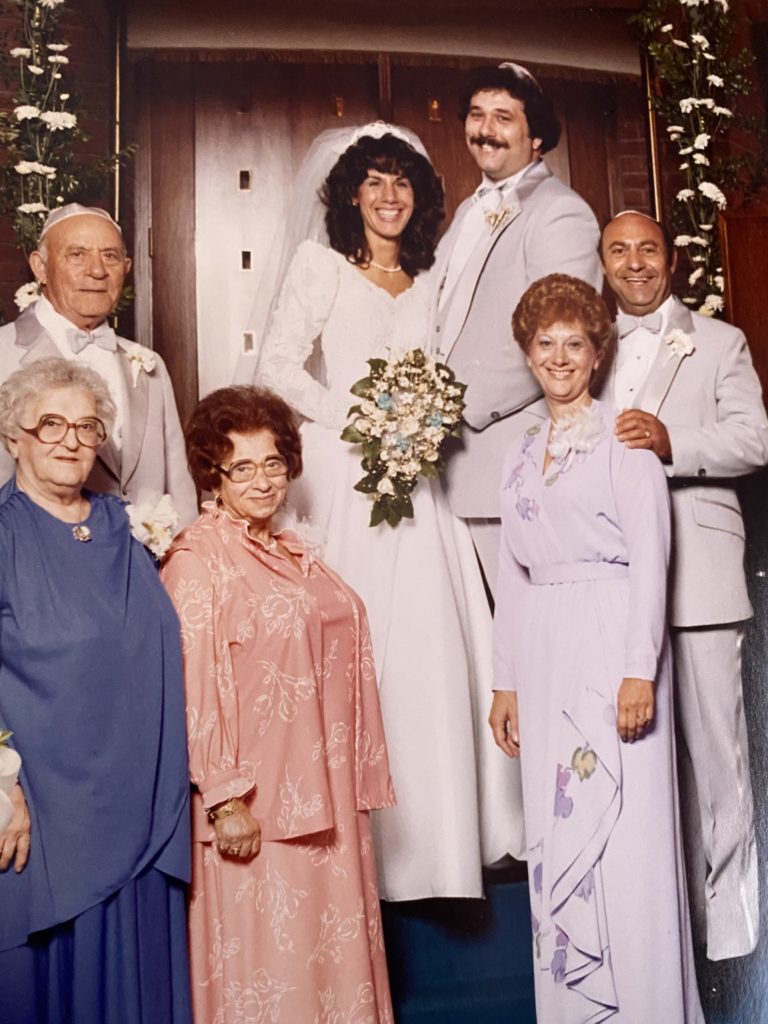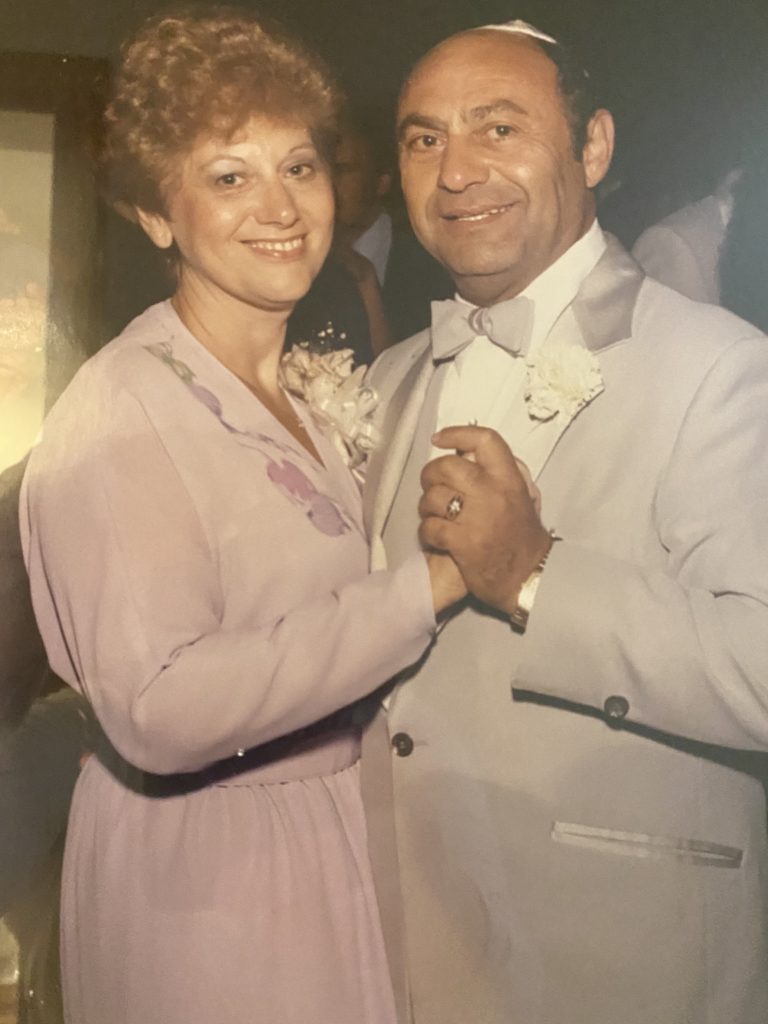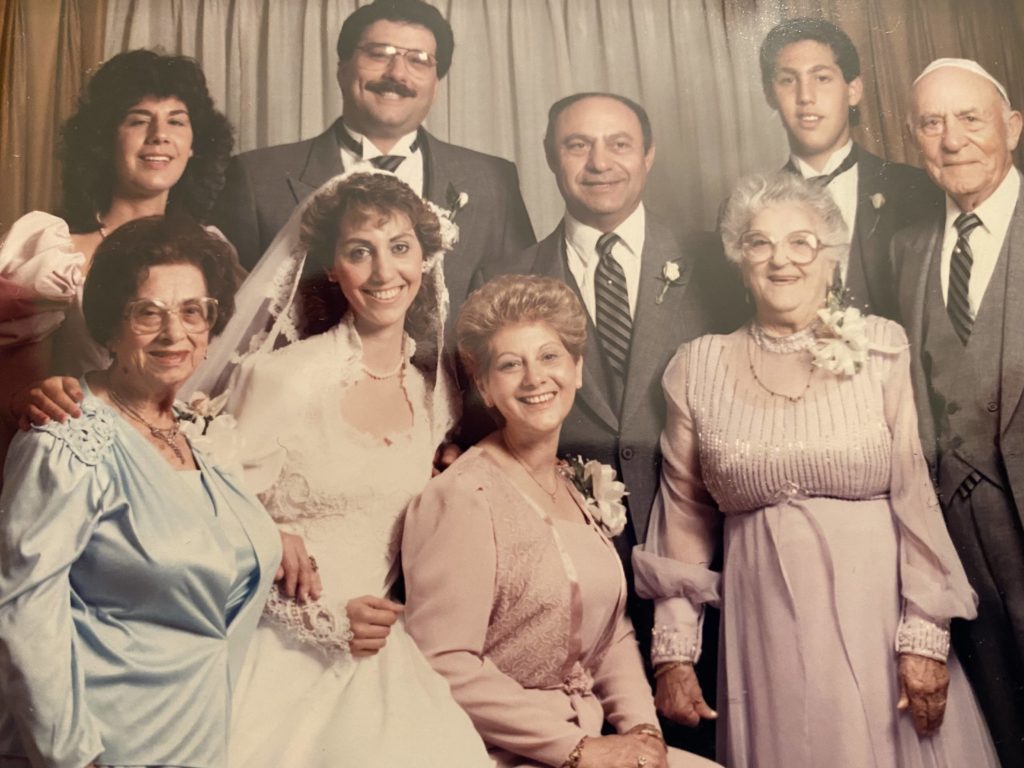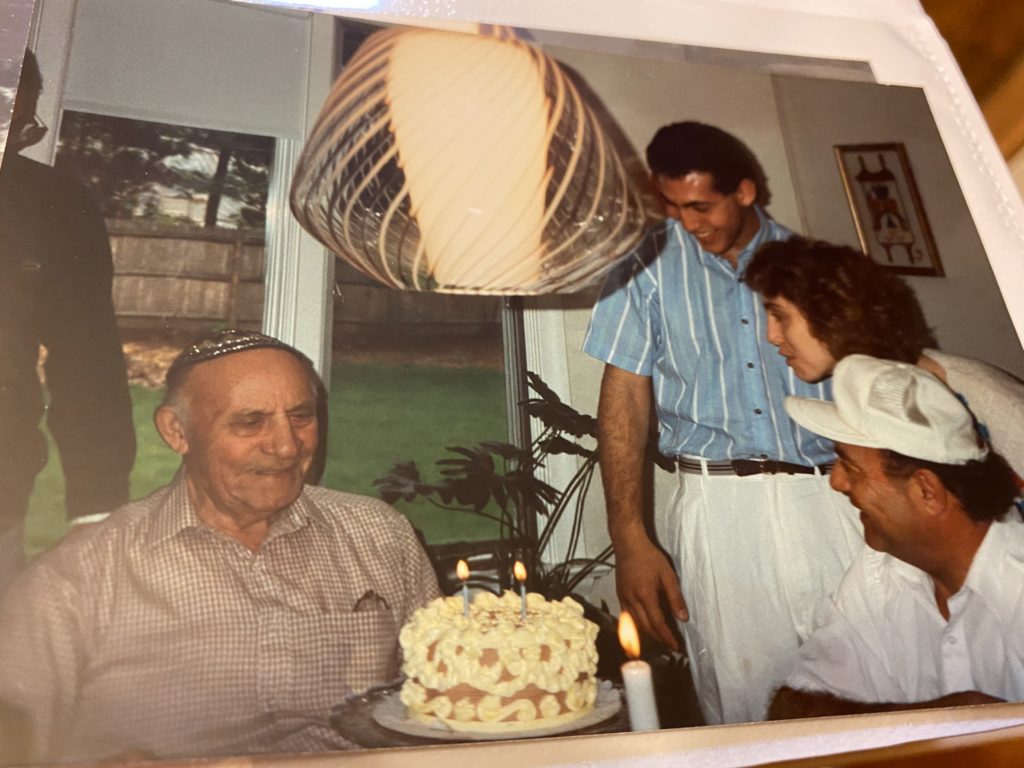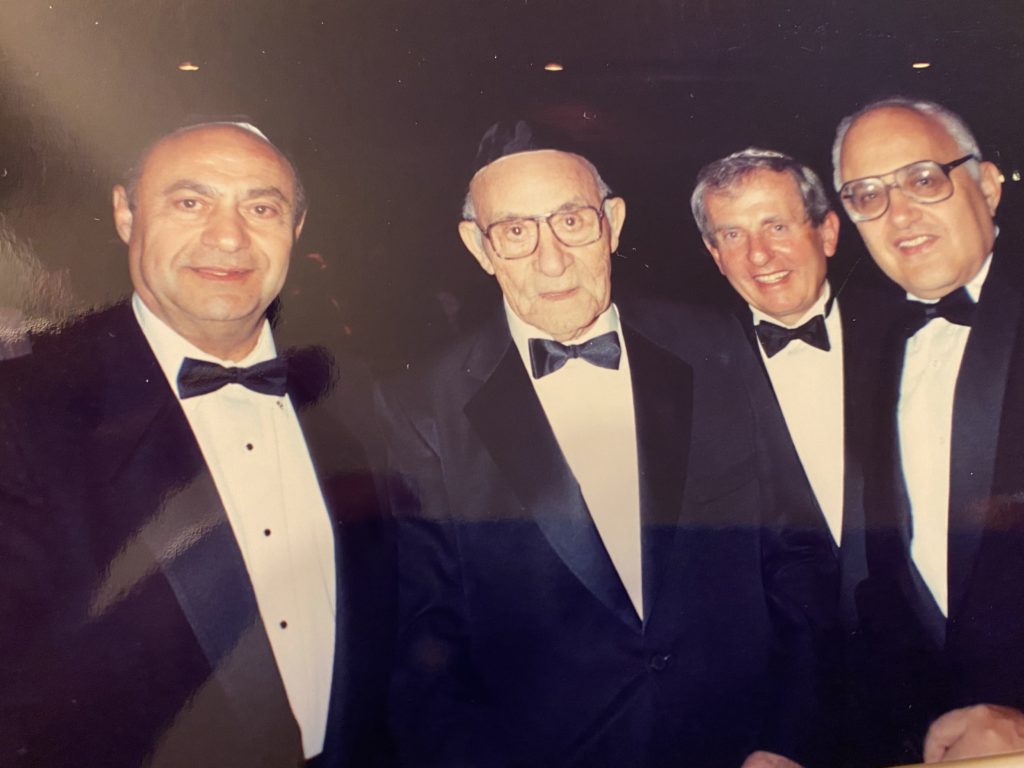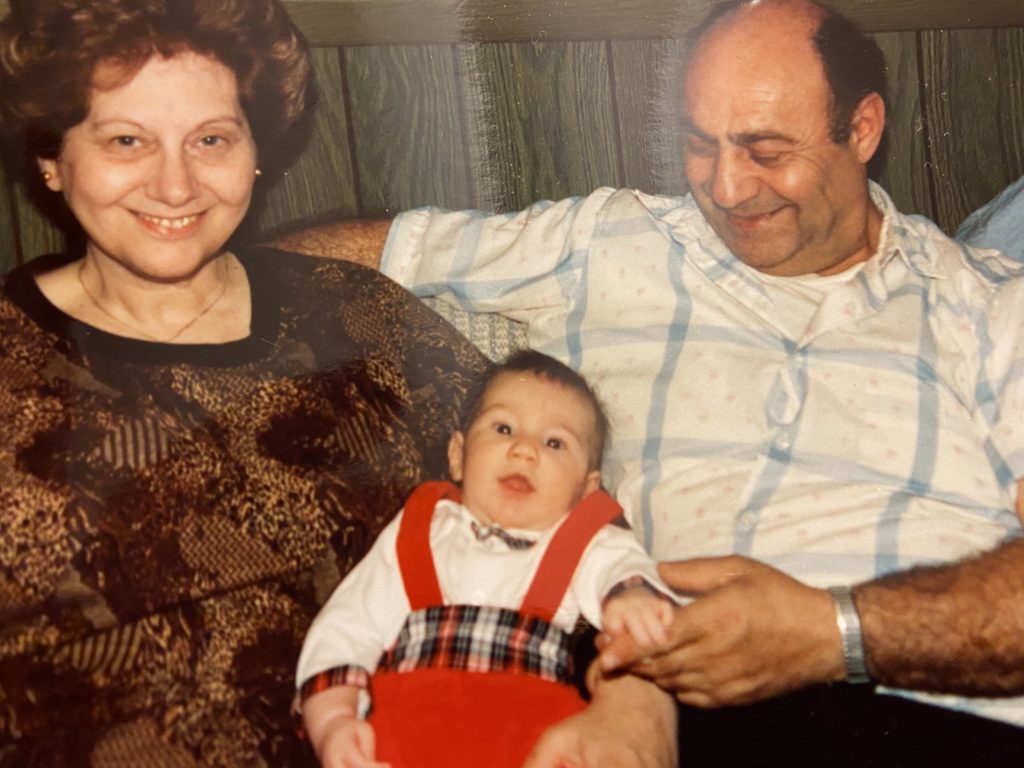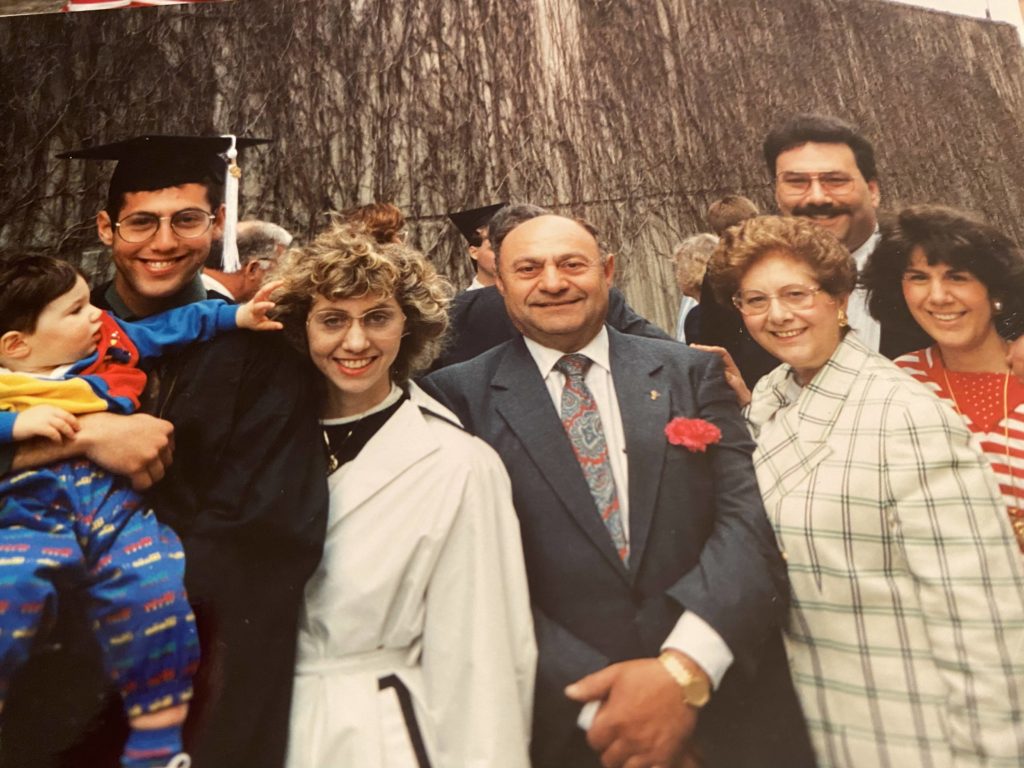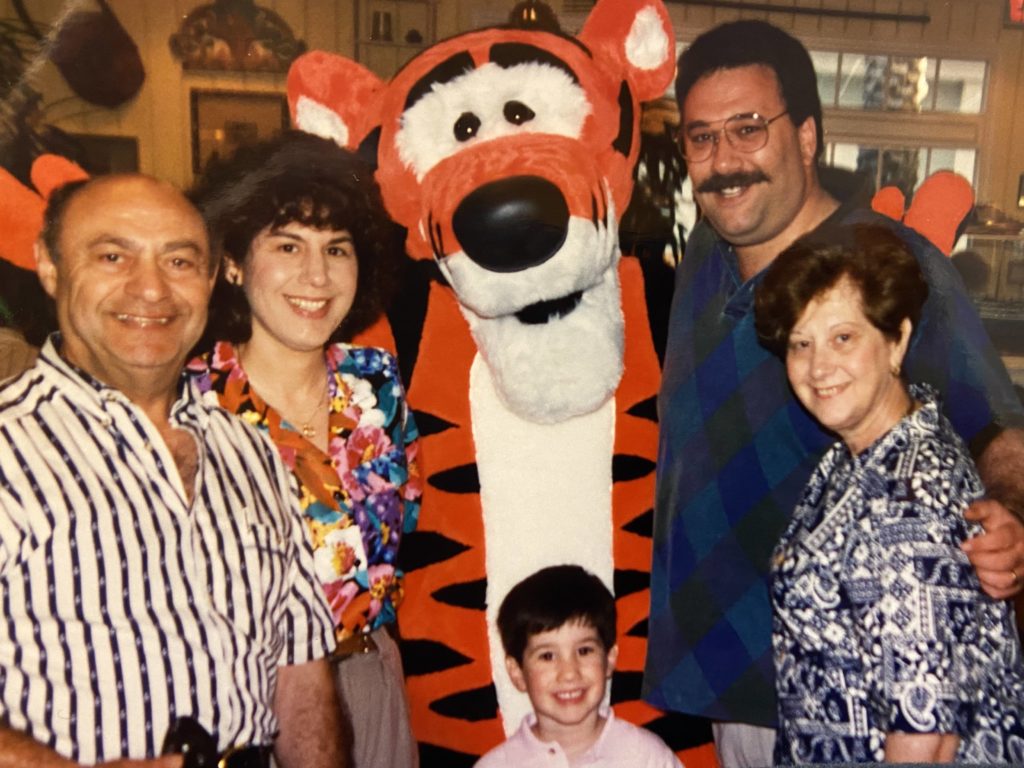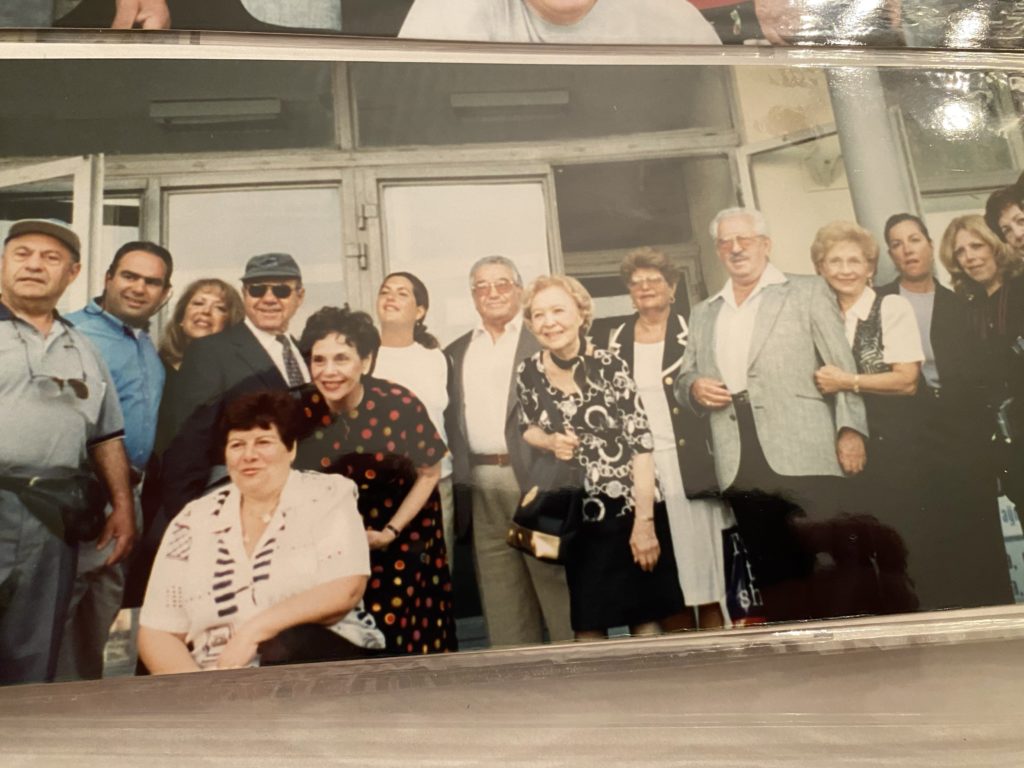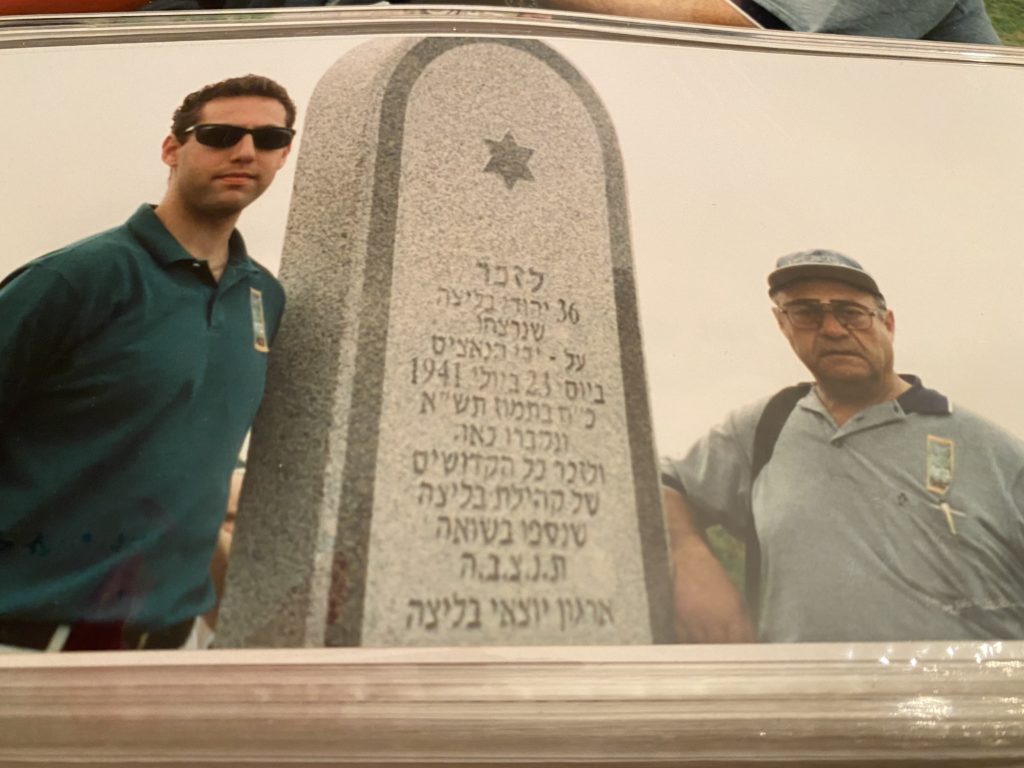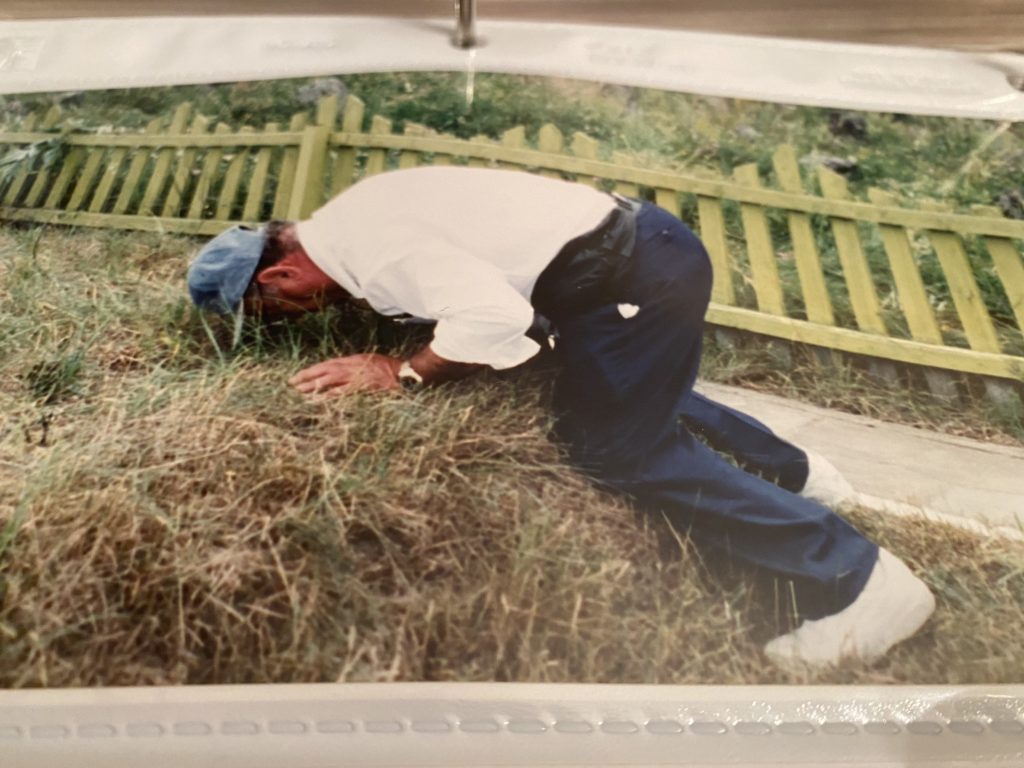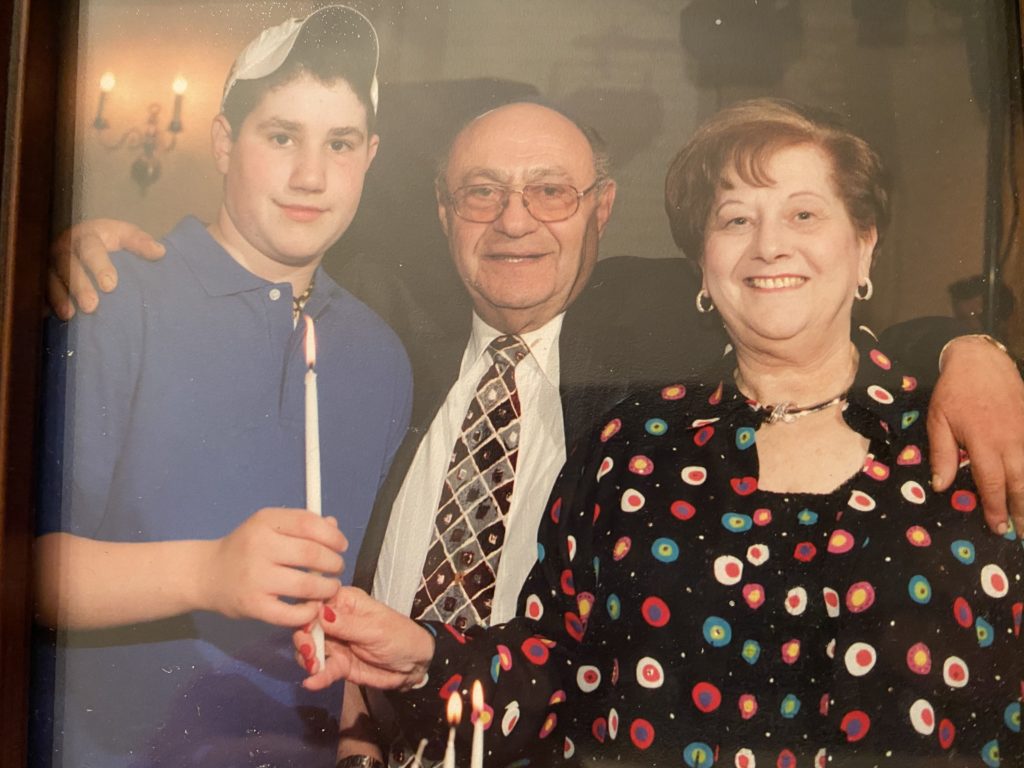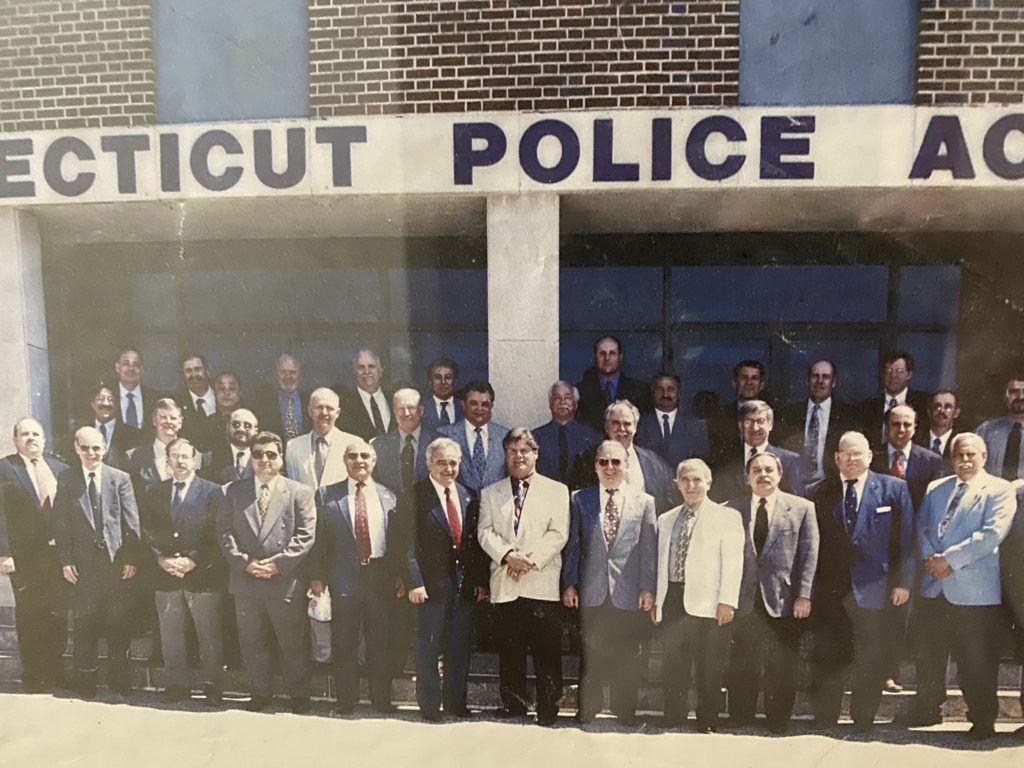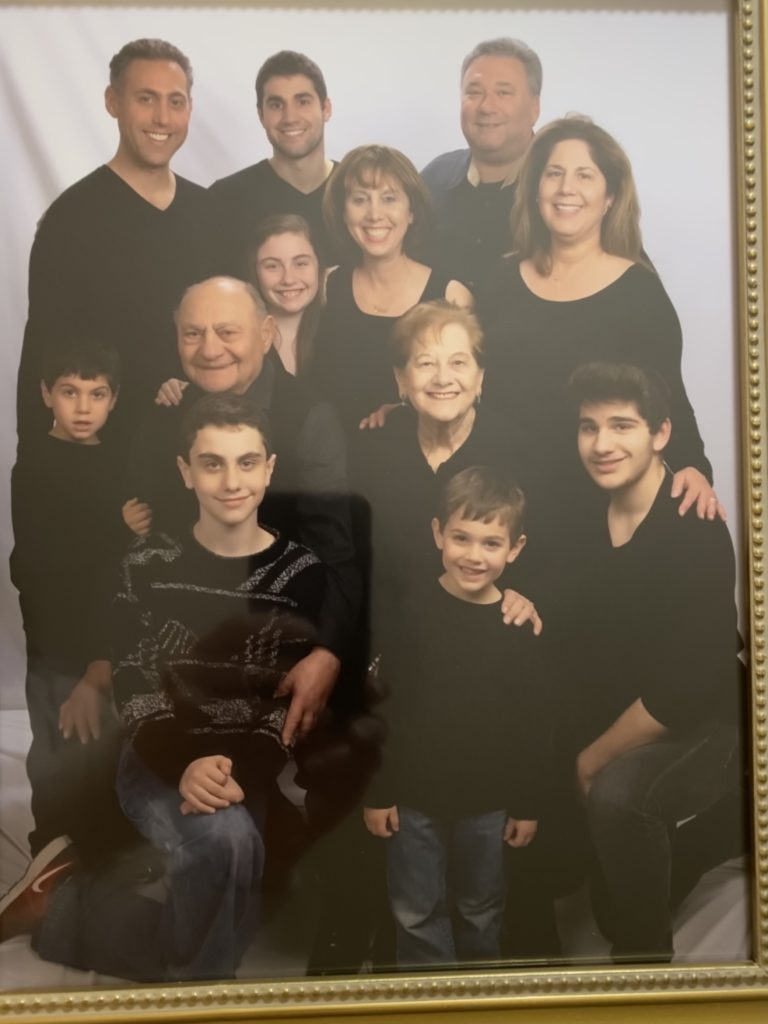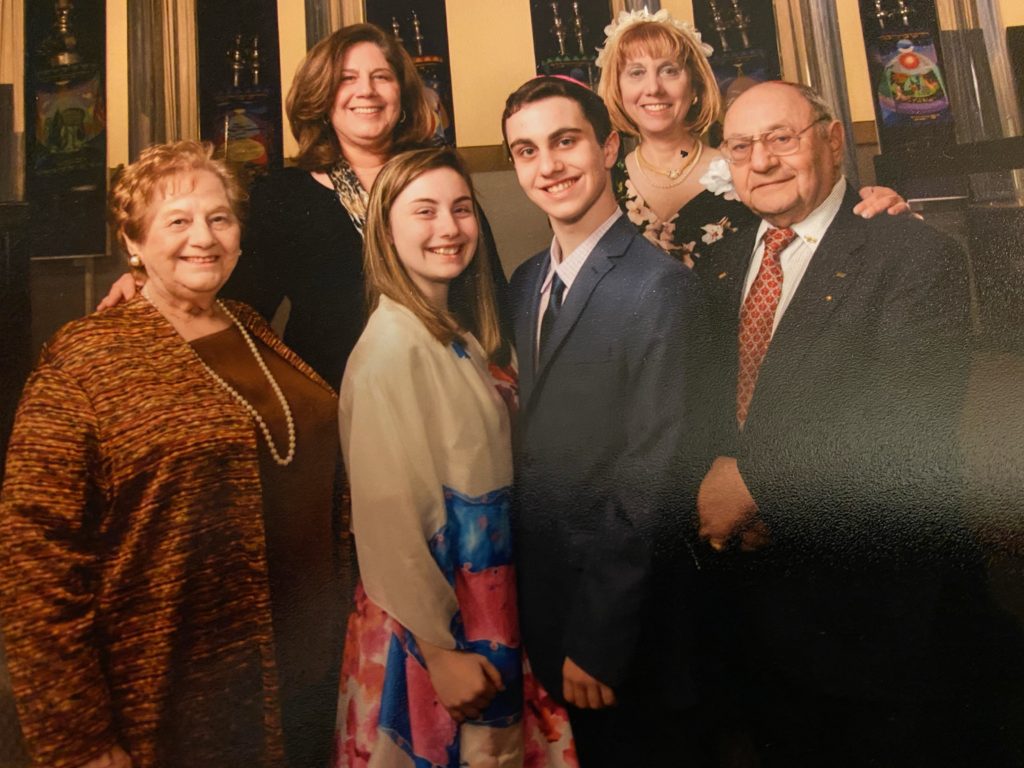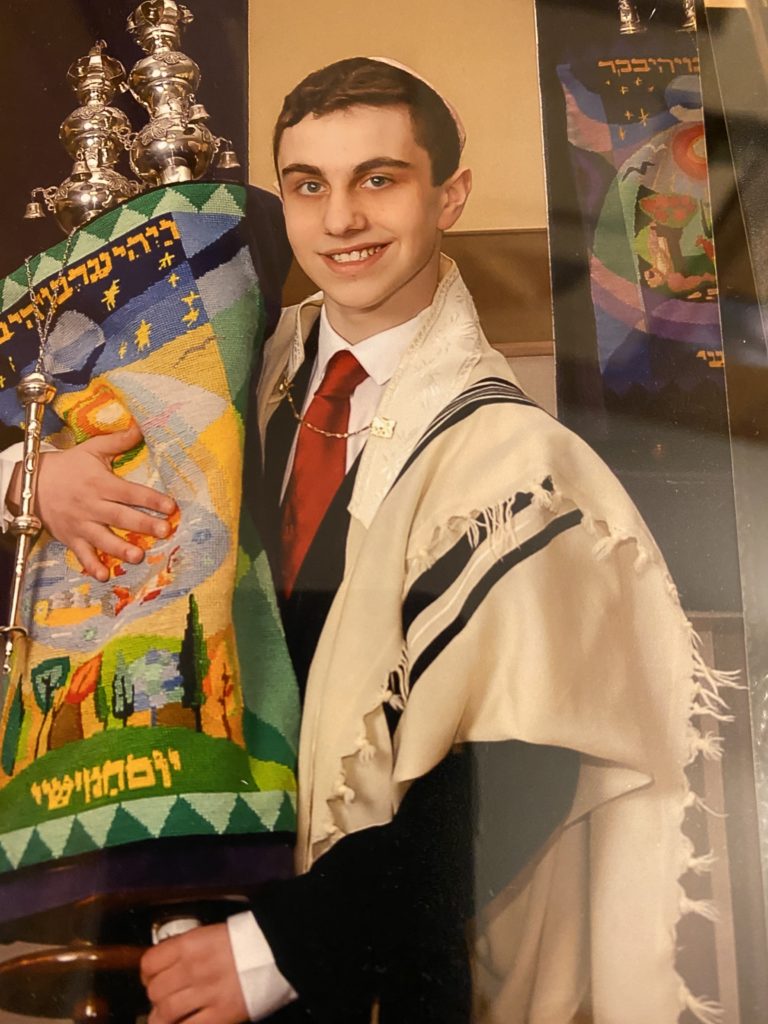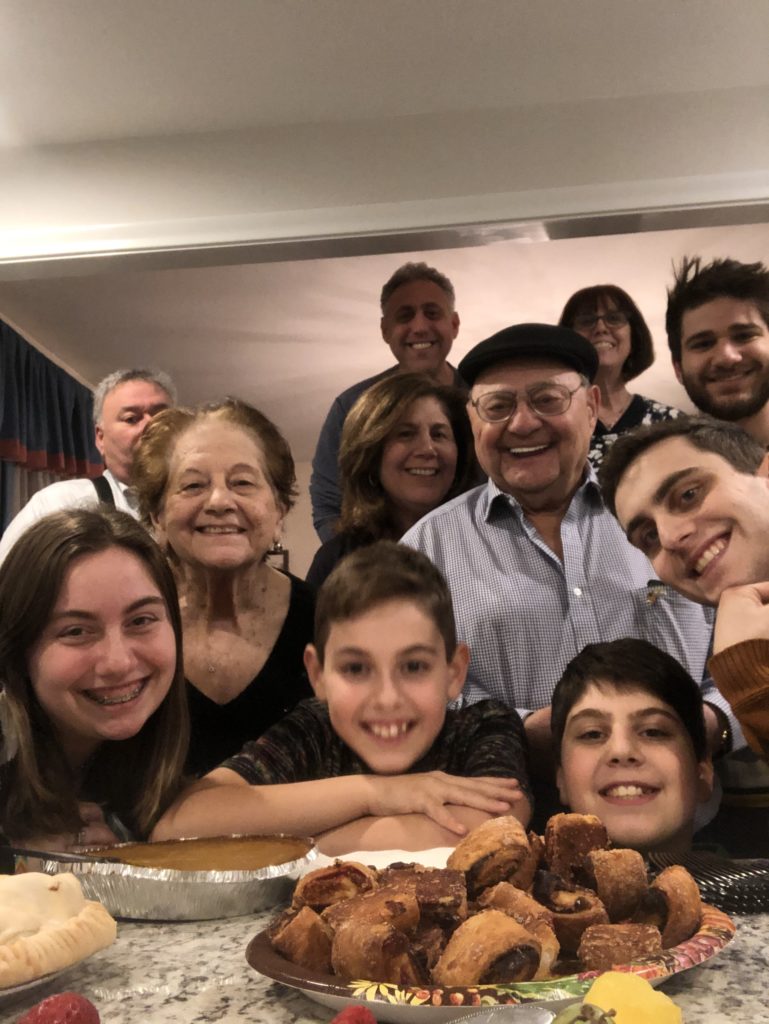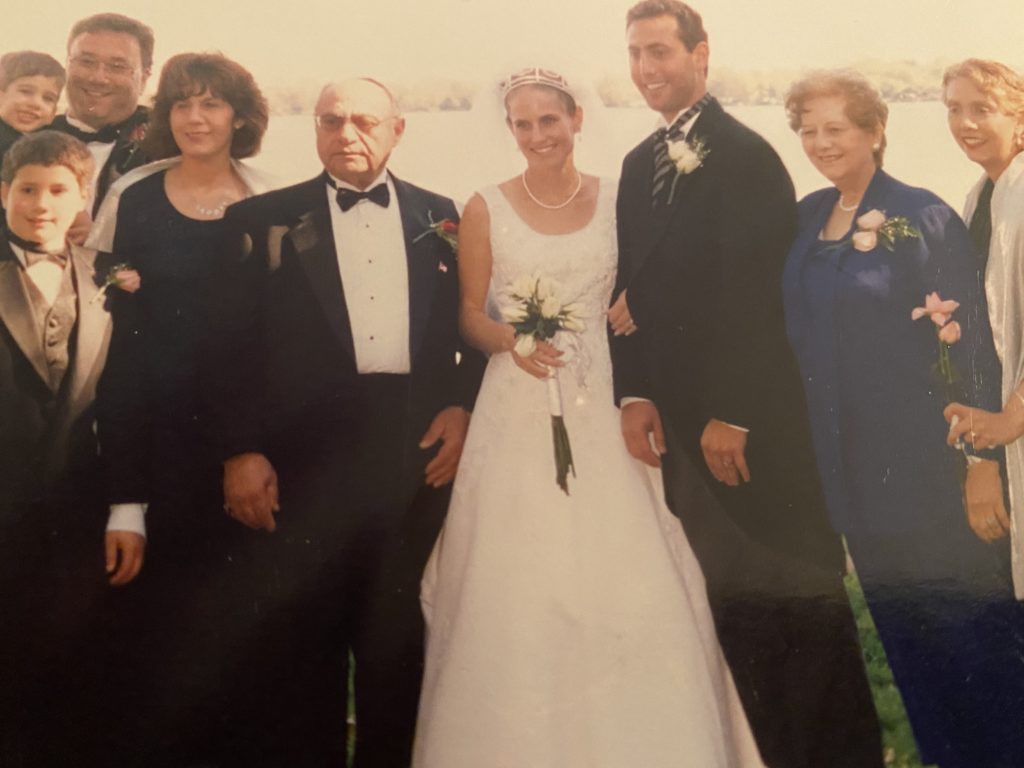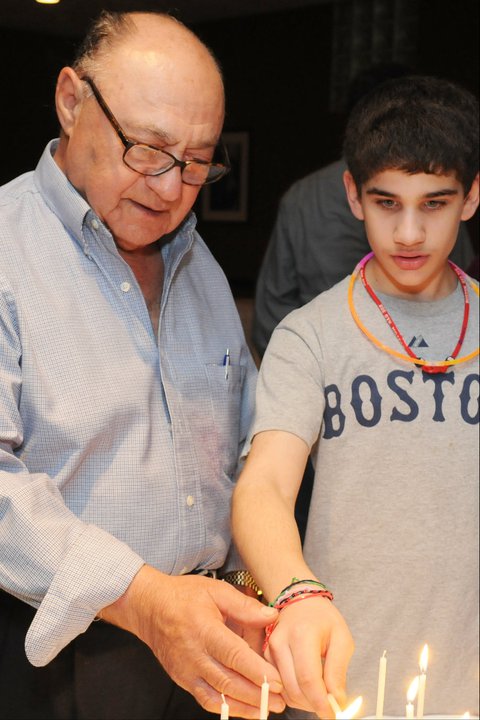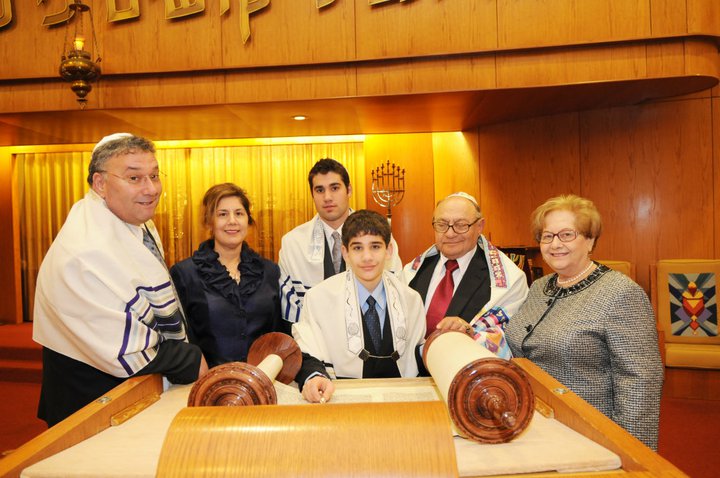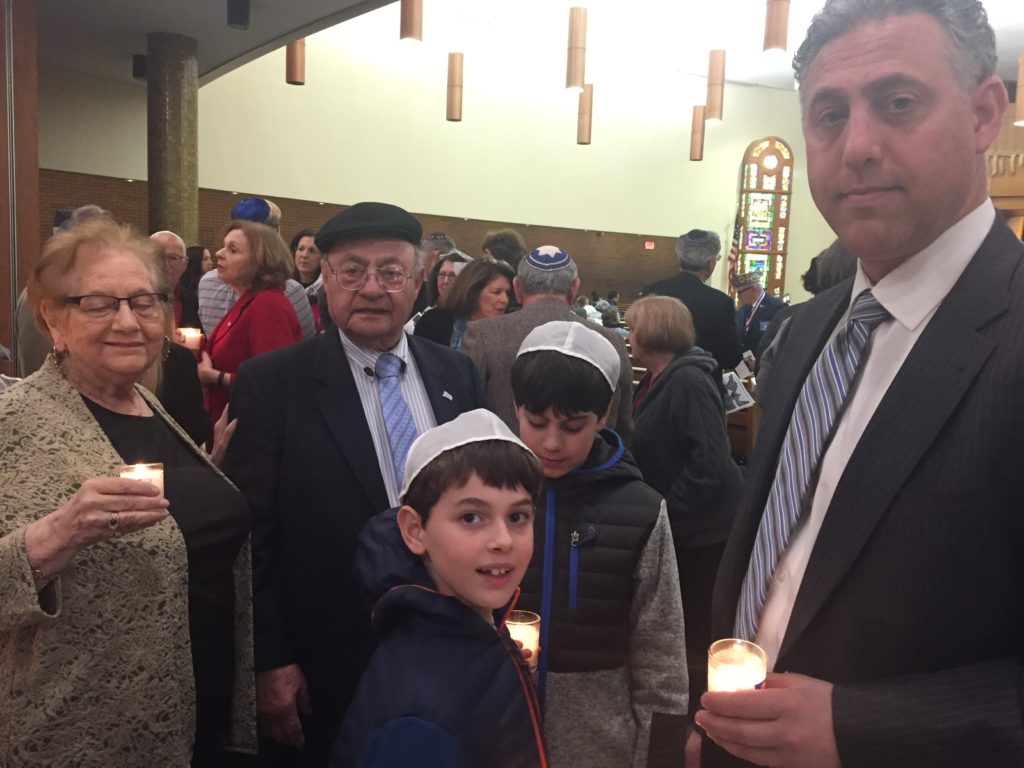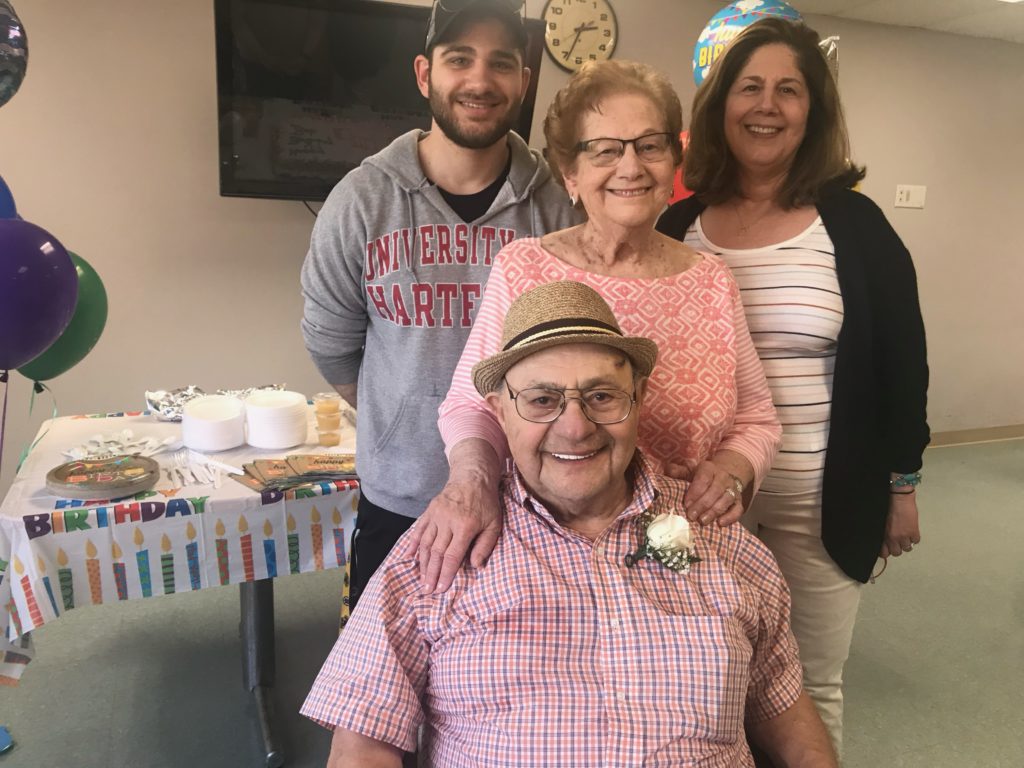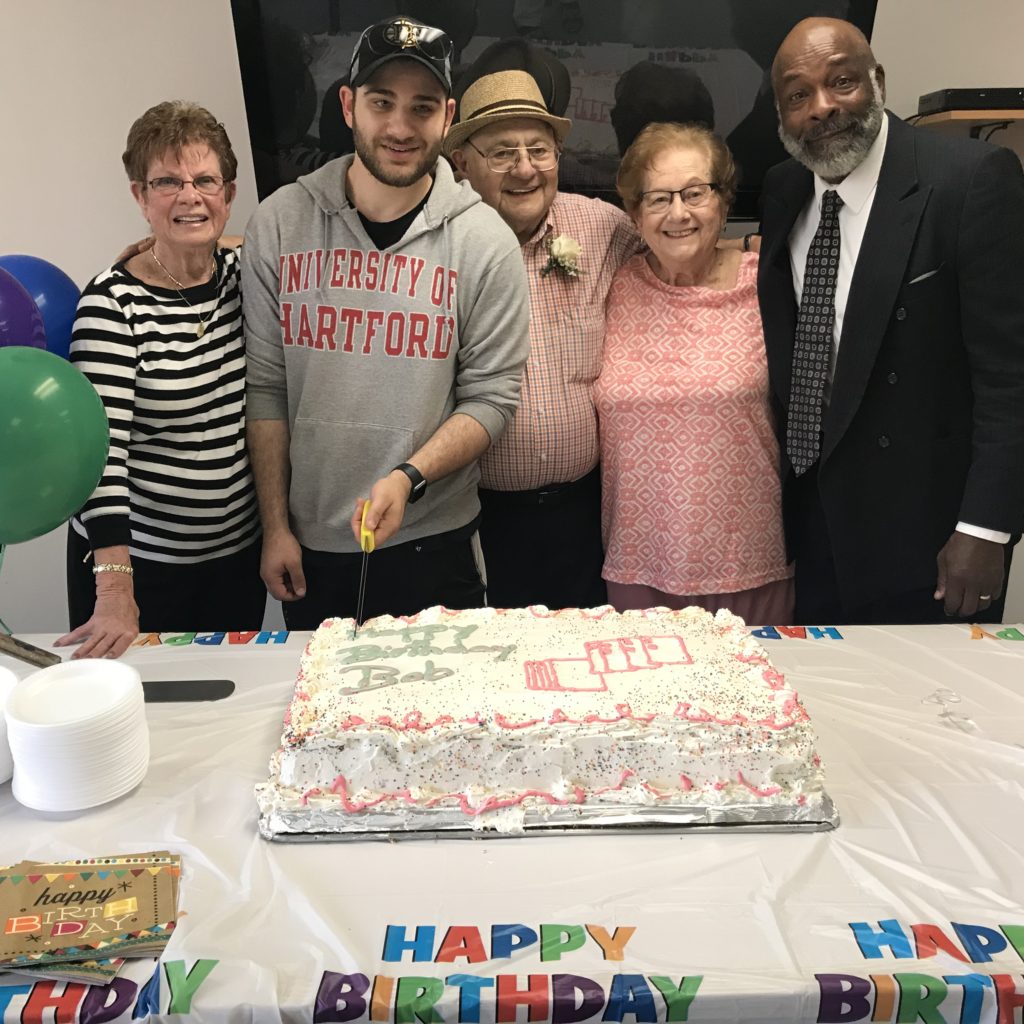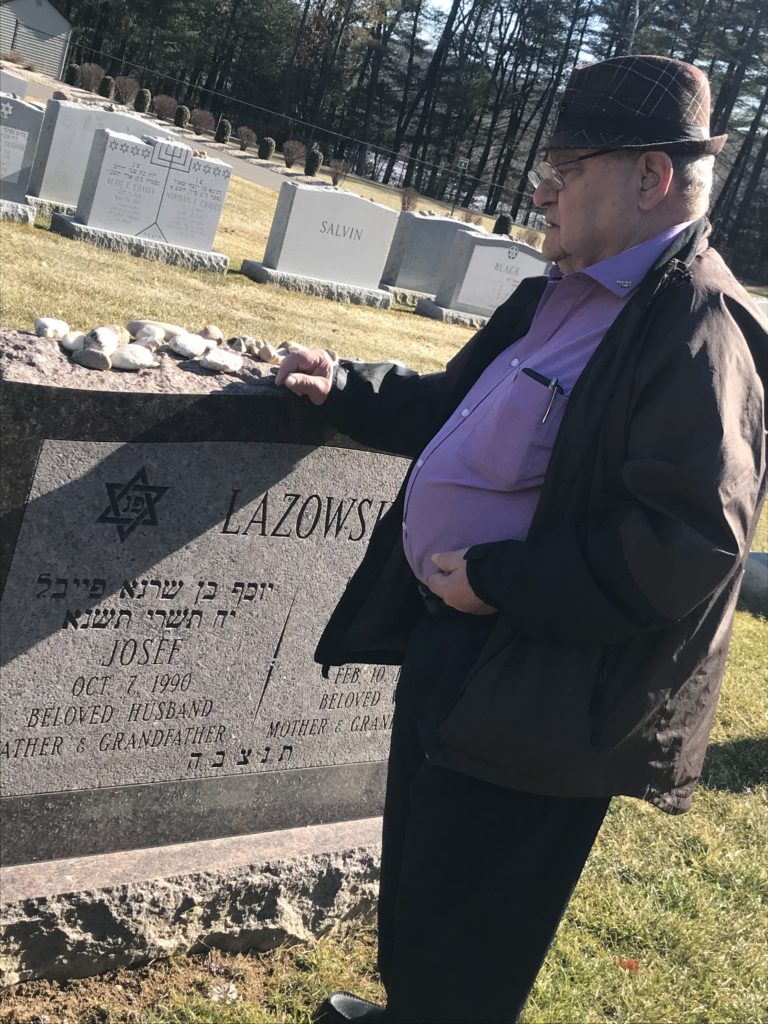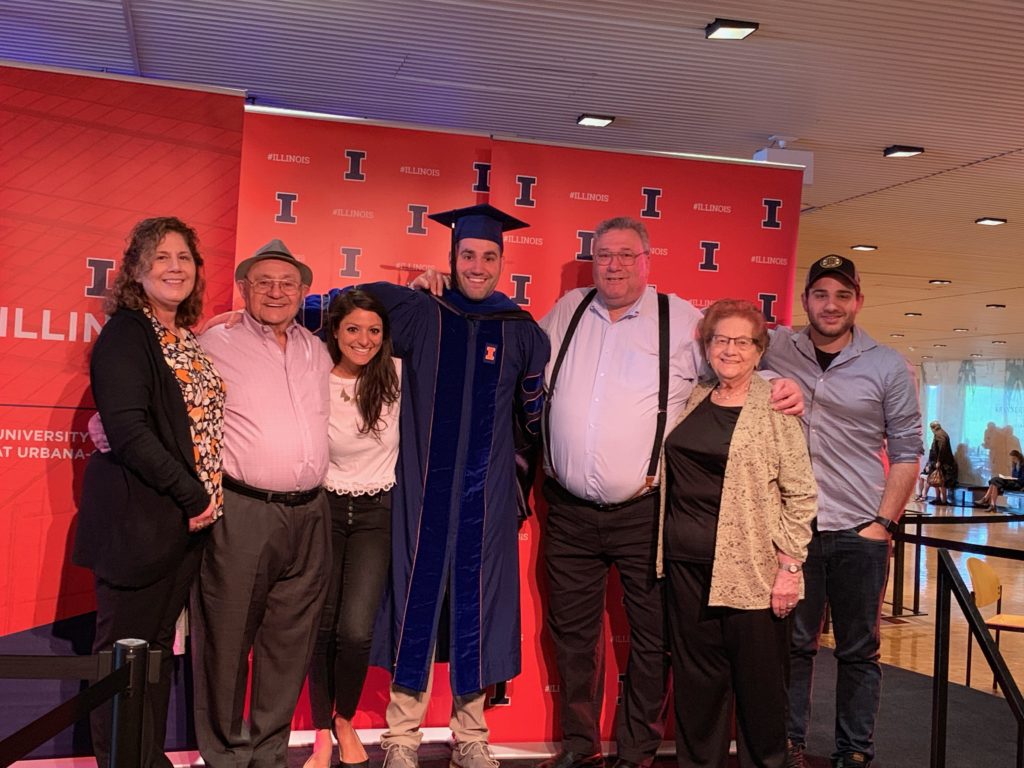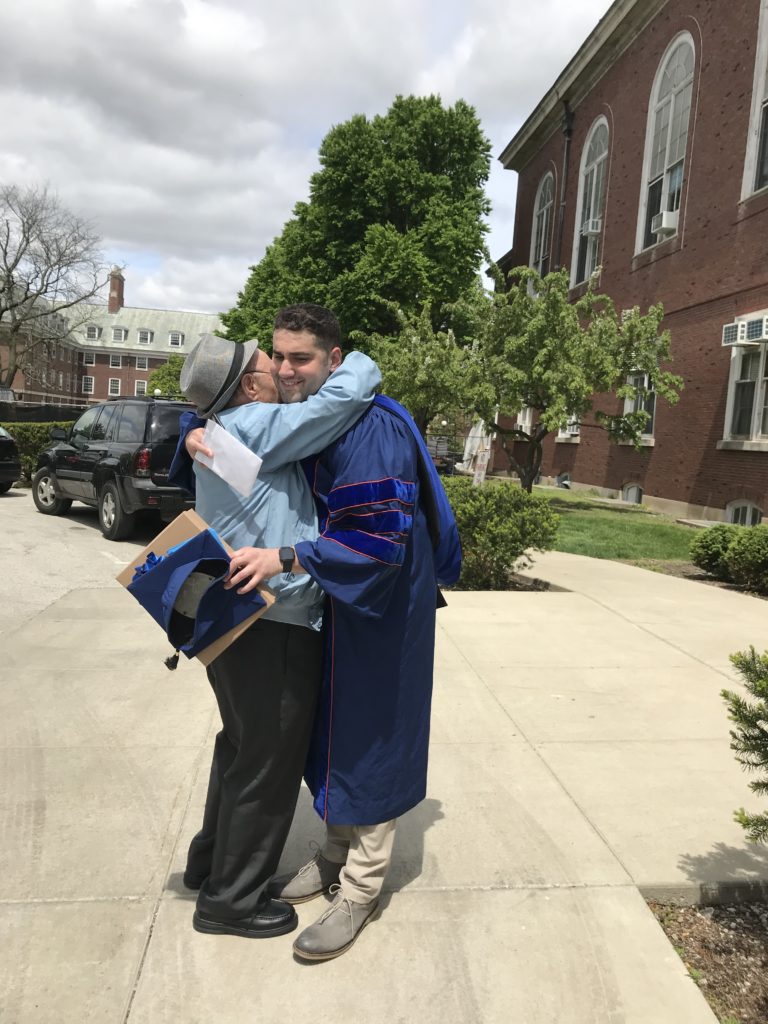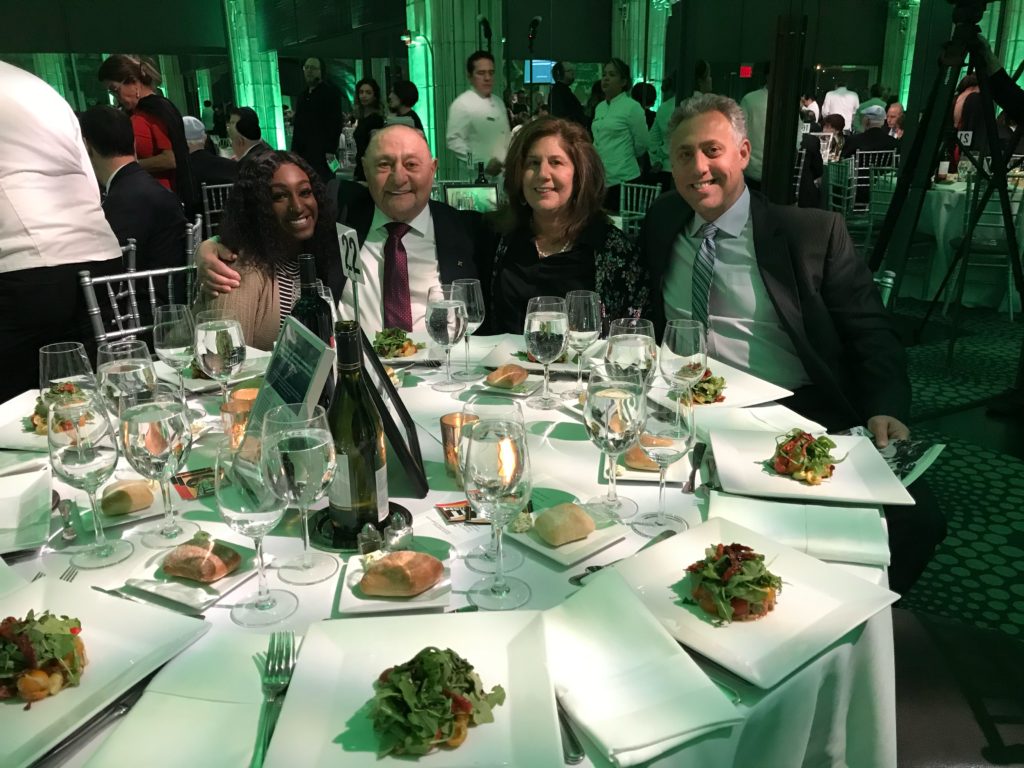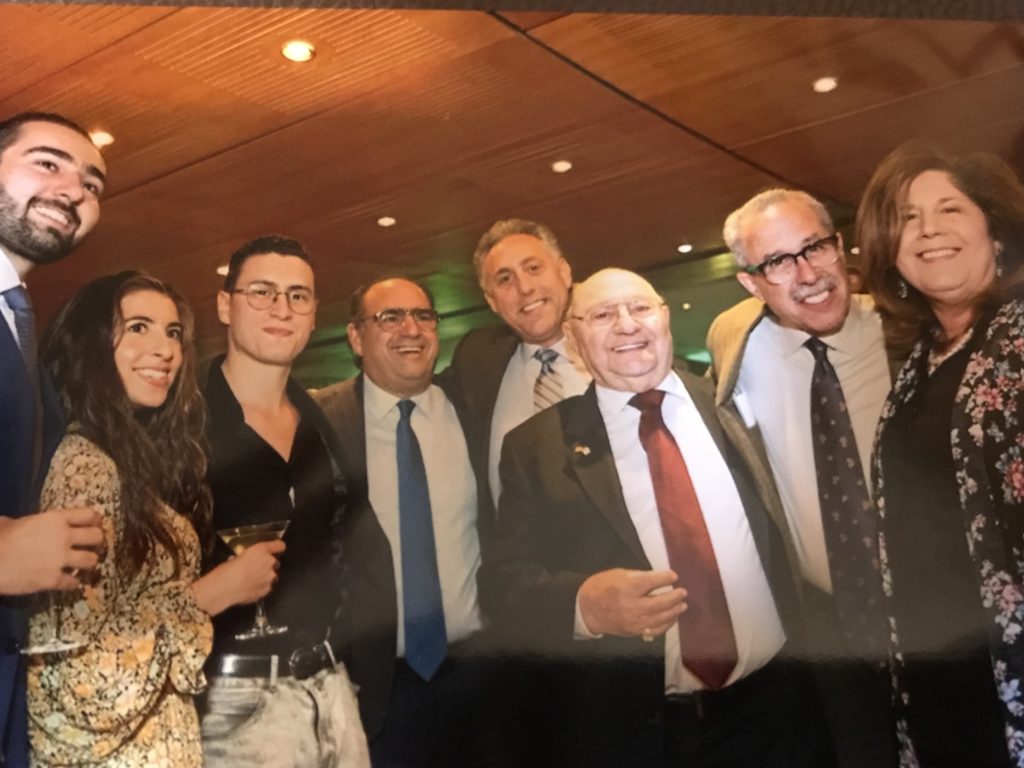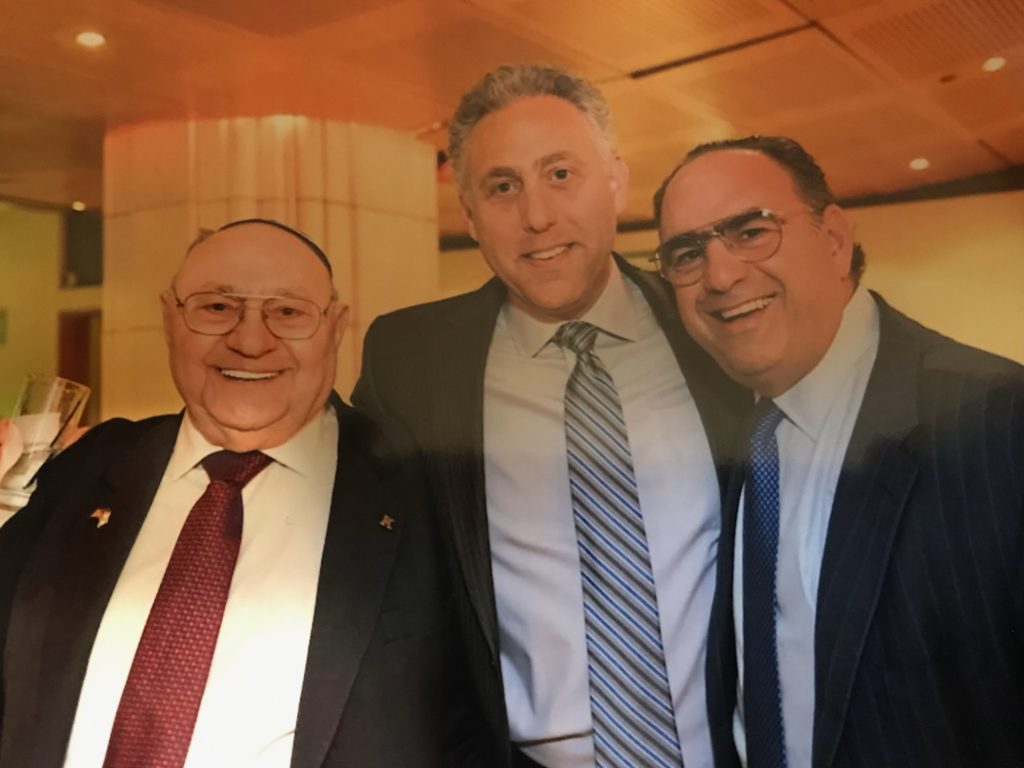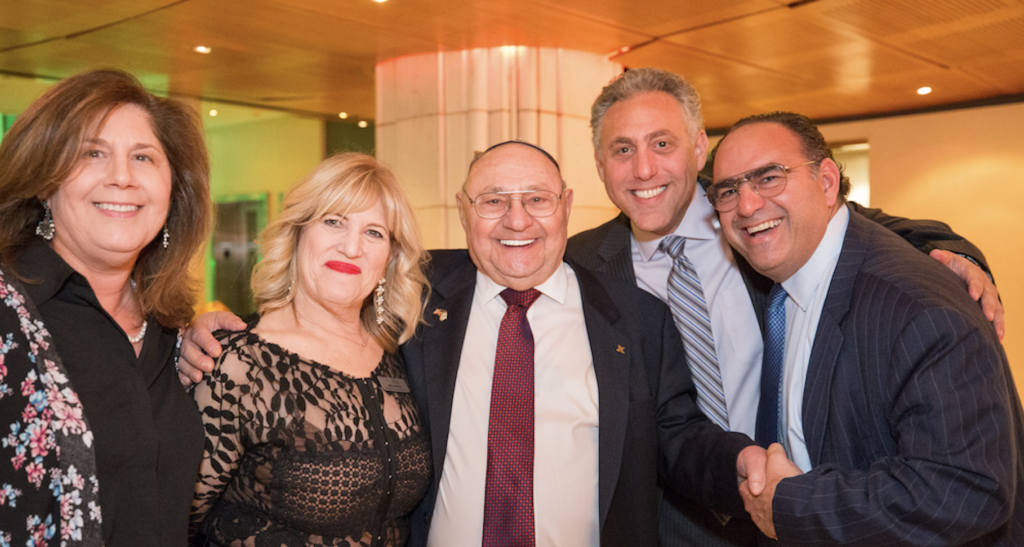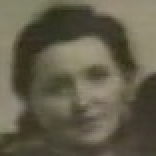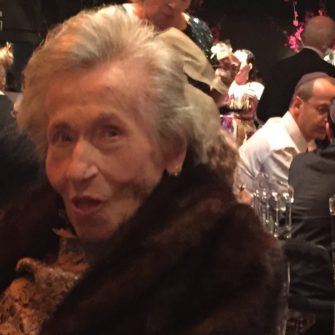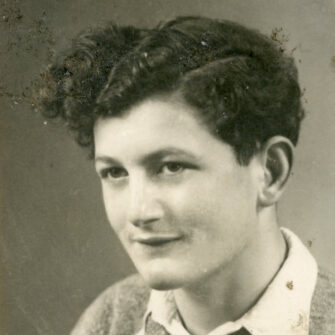Robert Lesser was born Erachmil (Rachmil) Lazovski (Lazowski) on May 13, 1933, in Bielica, Poland (pronounced Belitza), what is now Belarus. Bielica was an agricultural and fishing community, and the town’s trading post became a center for Jewish merchants. Robert’s father, Joseph, was a successful fisherman on the Neman River who exported fish to Lida and Vilna. His mother, Chaya Gitel, owned a fabric store. Robert had three brothers: Feivel, Avraham, and Aaron, as well as a sister, Rachala.
In September 1939, the Russian Army seized Poland from the east while the German Army invaded it. The Russians occupied the small town of Bielica until 1941 when the Germans broke their alliance with the Soviet Union and marched into Robert’s town. Despite being small, Bielica was desirable to the Germans due to three main roads that passed through it, along with its proximity to a nearby airport.
Robert was eight years old when the Nazis burned down his thatched-roof home and destroyed everything inside. The family remained in Bielica, crowding into Robert’s grandfather’s house along with two other families. On November 10, 1941, the Jews of Bielica were forced to leave, taking whatever they could carry with them as they walked to the town of Zhetel. A ghetto was established there in February 1942.
On August 6, 1942, the Zhetel Ghetto was liquidated. Robert and his family hid in a cave they had dug underneath the house. They were discovered when their maternal grandfather, Yisrael Halpern, was heard coughing. His mother told Robert to run and hide. He fled to the outhouse and climbed into the hole, submerging himself into human waste and maggots. He could hear his grandfather being murdered and was almost killed himself when a Nazi relieved himself on top of Robert.
After eighteen hours of hiding, Robert left the outhouse and ran into the woods, where he was helped by farmers who knew and respected his grandfather. After they clothed and fed him, he continued to Dvoretz and entered a slave labor camp. Feivel joined him not long after, and Robert sent out word that he and his brother were there. Feivel told him their brother, Avraham, had been killed and recounted his narrow escape from a theater where the remaining Jews of the Zhetel Ghetto were taken for execution. Their mother, her unborn child, Aaron, and Rachala were murdered there.
Eventually, their maternal uncle, Mendel Halpern, and their grandfather’s friend, Mayshcha Dachanuth, a horse peddler who knew the lay of the land, came into the slave labor camp. Mendel told Robert and Feivel that their father was still alive and living in the Belaruski Pushcha Woods about 15 kilometers from Bielica. They planned their escape to join him but had to quickly change their plans when Robert noticed an uncircumcised man (a spy) in the communal shower. Those not aware of the change in plans escaped to their death. The next night, the brothers successfully escaped and were reunited with their father, maternal aunt, Leah Halpern, and cousin, Avremel Halprin.
They stayed in the woods for over two years with another group of Jews, mostly married couples, women, and children. They relied on information from the partisans who had a camp nearby. The partisans would periodically inform them about dangerous areas and when they needed to move. While living in the woods, Robert became infested with scabies and was near death; a grave was dug for him. However, his father often went on supply runs with the partisans and managed to obtain medicine that saved Robert’s life. Uncle Mendel became a partisan and was later killed in battle.
When Robert was nine years old, the partisan general came into their camp and made him a lieutenant. General Kohlka entrusted Robert with his machine gun, which was loaded with seventy-two bullets. Robert kept his finger on the trigger while the General slept during the day. He wanted Robert to fight with the partisans, but his father would not let him go. Instead, Robert was given the task of digging holes in the middle of bullets, lighting them on fire, and throwing them so they would explode. If the Germans did not respond to the noise, they knew it was safe to go out of their camp. The partisans loved to be entertained by Robert. He sang, danced, and played a makeshift harmonica.
In the summer of 1944, the Germans began to retreat. Robert and his family left the woods, fearing it would now become a hiding place for the retreating Nazis. They returned to Zhetel to put a marker on their family’s grave before returning to Bielica. Upon arriving, they found the town mostly burned to the ground and decided to move to Lida, where many other displaced Jews were gathering at the time. After staying in a DP camp in Badgastein, Austria for two years, Robert, Feivel, their father, and his new wife, Faiga, left for America on the USS Marine Tiger Warship. They arrived in Brooklyn, New York, on November 22, 1947, where they were reunited with cousins already living in the United States.
On October 16, 1955, Robert married Margaret Bramson, who fled Nazi Germany with her parents at the age of four. They moved to Hartford, Connecticut, where he started his own plumbing and heating business. Robert has shared his testimony with the Shoah Foundation and has spoken at schools about his experiences. He has done extensive volunteering and has been involved in numerous organizations in his community. Robert has served as president of The Capital City Kiwanis Club in Hartford, Connecticut., the Connecticut Plumbing and Heating Association, Patera Mutual Benefit Association, and Chairman of Boy Scouts of America. In 1980, he worked with Connecticut Governor Ella Grasso on educational advancements for both technical schools and community colleges. With the help of noted black historian Dr. John Rogers, a professor at the University of Hartford, Robert established a black history library, which still exists at the university.
In 1999, Robert, Margaret, and their youngest child, Matthew, went on a pilgrimage to Belarus with other survivors and their families. While there, they erected a granite monument on the outskirts of his birthplace, Bielica, to memorialize the initial slaughter of 36 Jewish men, which included their beloved Rabbi Fein, when the Nazis entered their town.
Robert and Margaret have been married for 65 years. They have three children, Cindy (Joe), Deborah, Matthew, and six grandchildren: Dr. Jason Cohen, John Cohen, Jared, and Hannah Linder, and Ronen and Benjamin Lazowski.
Read about Robert Lesser’s brother, Rabby Philip Lazowksi here: http://www.jewishpartisancommunity.org/philip-lazowski/

